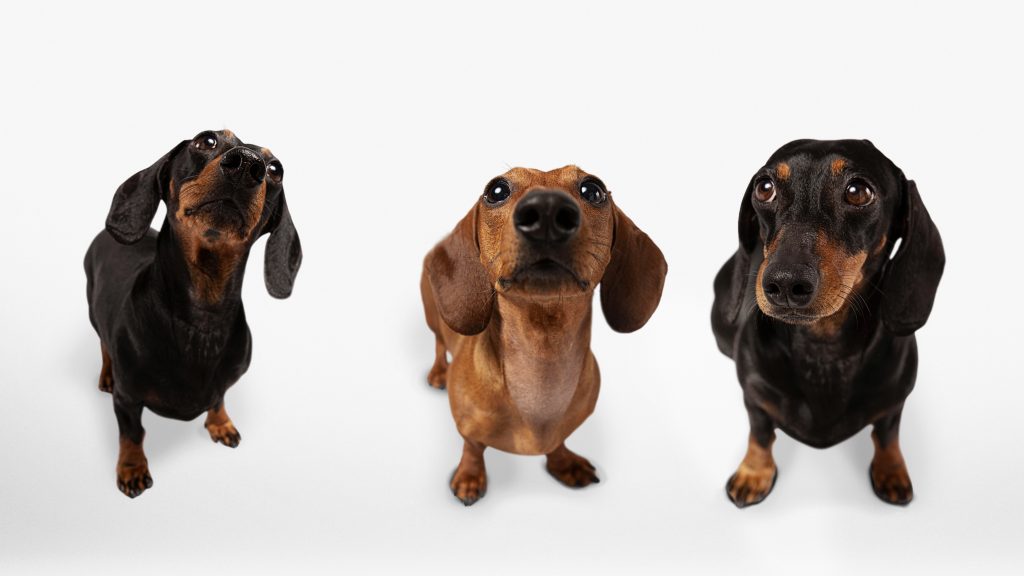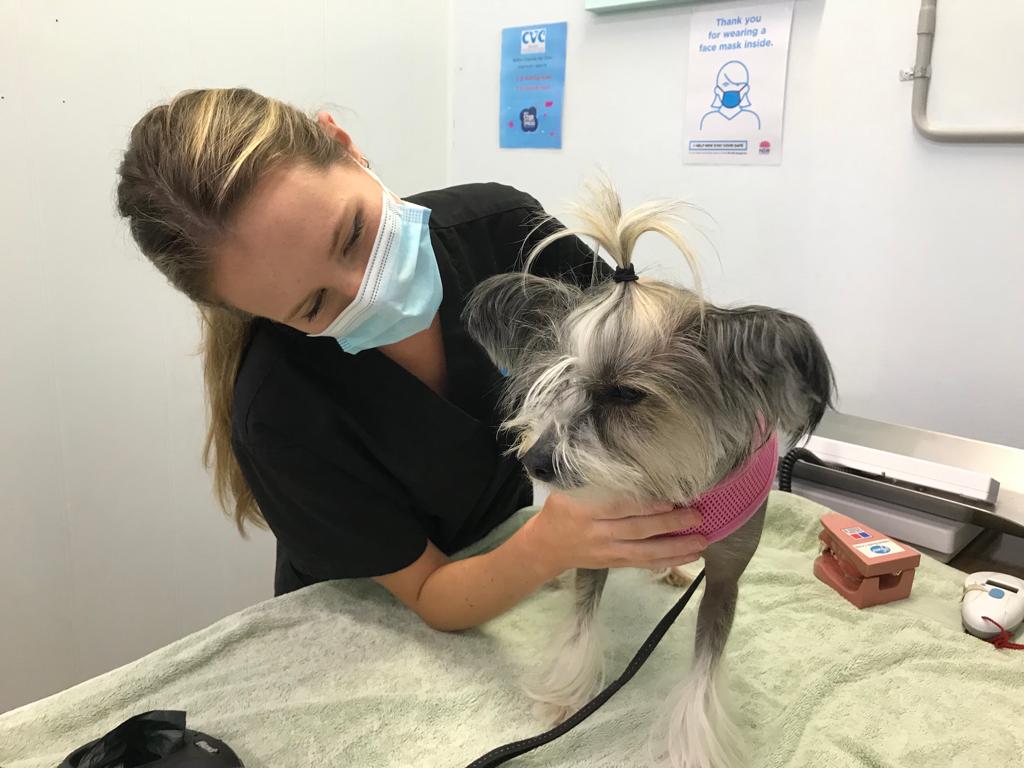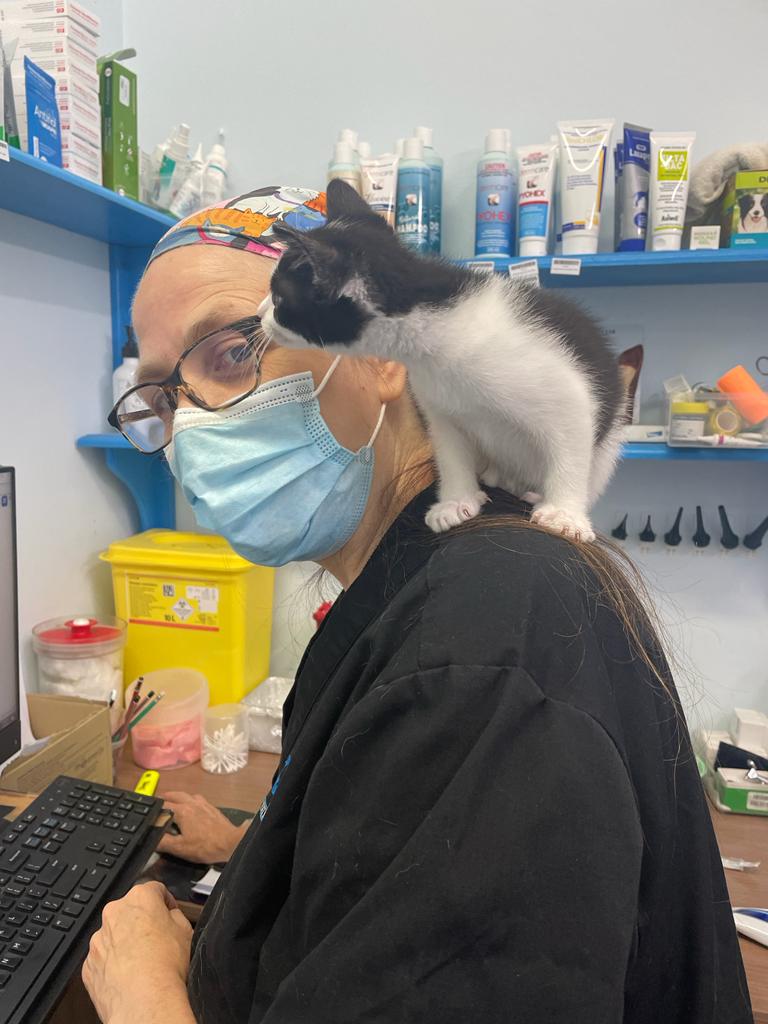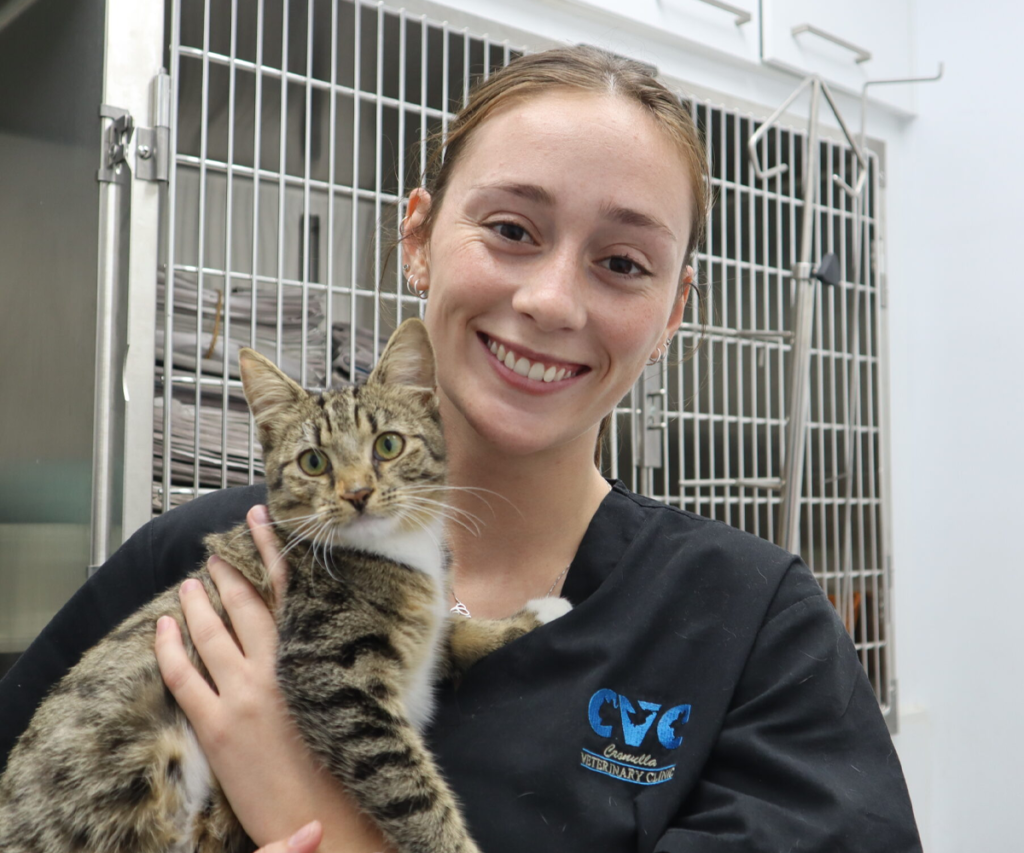Taking an unwell pet to the vet is always stressful for a pet-parent. The possibility of a scary diagnosis weighs heavily and there is usually added concern about the bill for the treatment.
The availability of pet insurance (like private health insurance for people) has helped pet owners to provide their pets with the veterinary care they require. Unfortunately, the veterinary costs of caring for one’s pet are often not planned, nor budgeted for. Veterinary services can then end up being a grudge purchase, leading to the vet being blamed for being ‘so expensive’! So, if vets aren’t money-grabbers at heart, what are those bills all about?
For one thing, your single veterinary bill is a cumulative invoice for the services of several professionals.


PHARMACIST
Your vet is also your pet’s pharmacist, and the costs of Max and Cleo’s medications are included on the invoice you receive after a veterinary consultation. This requires a veterinary clinic to hold a large pharmaceutical inventory in order to always have drugs at hand for the species they are treating. There is no time to order in critical medicines – these must be bought and paid for in sufficient quantities ahead of time and they don’t cost less to buy than human medicines.
BABY CLINIC
When a new pup or kitten joins the family, your vet is the person who guides you through those first few weeks and months of pet parenting, who vaccinates your young pet; deworms; microchips; advises on nutrition, exercise, social enrichment, provides access to ‘puppy preschool’, and family planning (desexing); and helps you to ensure that your pet gets the very best start possible in terms of health and environment. You never have to set foot in a separate “baby-care clinic” – these services form part of your regular veterinary consultation fee and the people trained in these fields are part of the clinic staff.
CLINICAL LABORATORY AND EXPERT ANALYSIS
In order to get a clear picture of what ails your pet, the vet will analyse blood, urine, faecal and tissue samples. The specialist equipment needed to do this, and to provide an immediate diagnosis, requires a huge financial investment. Alternatively, a vet may send the sample away to an external laboratory that charges their professional fees in turn. The costs for these tests are included in the bill for that veterinary consultation and aren’t billed for separately as they are in human medicine.
RADIOGRAPHER AND ANAESTHESIOLOGIST
Your vet or vet nurse is also your radiographer and anaesthetist (and ultrasounds can be arranged at our clinic by specialist ultrasonographers). Any X-rays under general anaesthesia to diagnose trauma or diseases are provided by a veterinary healthcare professional in-house and are analysed straight away. The equipment requires an investment of thousands of dollars. The fees for these services are also billed directly on your veterinary invoice, not by a third party.


DENTIST
Veterinarians are trained as dentists, and veterinary nurses as oral hygienists. Few doctors conduct a routine dental check of their patient during their general healthcare check-ups, but your vet does. Additionally, your vet will perform full dental services with specialised dental equipment as well as an inhalant anaesthetic machine, as their patients don’t calmly lie back and say “aaahh”. To safely maintain the general anaesthetic, a dedicated vet nurse monitors the anaesthetic, with the help of monitoring equipment such as pulse oximetry, capnography, blood pressure monitoring, ECG, and if indicated, blood test monitoring.
OPTHALMOLOGIST AND EAR, NOSE & THROAT SPECIALIST
Vets must have a wide-ranging knowledge of all conditions affecting the eye, ear, oral cavity and throat of their patients, all of which are also checked during routine examinations. Only out-of-the-ordinary cases are referred to specialists in the field; otherwise, all medical and surgical issues in these areas are taken care of by your vet.
NUTRITIONIST
Many health concerns can be effectively addressed by feeding your pet the correct diet and vets receive comprehensive training in the nutritional requirements of various different species of animals.
Companion animal vets also benefit from the incredible advances in clinical pet nutrition and can give dietary advice in order to ensure that your pet enjoys a healthy, vital and energetic life, regardless of any health challenges.
PSYCHOLOGIST AND BEHAVIOURIST
Having to deal with patients who cannot speak or effectively communicate their thoughts and feelings means that vets need to be experts at reading body language and pick up on the most subtle of changes in behaviour. They can often decode your pet’s confounding behavioural patterns for you and assist in maintaining happy relationships between all people and animals in the household. Anxiety, particularly, is a subject they are closely familiar with. We understand no animal enjoys visiting the vet or having to stay in hospital. But anxiety in general also contributes to many physical ailments (for example ‘feline ideopathic cystitis’ of FIC), so recognising anxiety makes for better medical outcomes and can help prevent diseases.
Vets help with advice or pharmaceutical support for pets who also exhibit states of anxiety outside the clinic in other aspects of their lives.


GERONTOLOGIST AND ONCOLOGIST
There are no old-age homes for elderly pets, or hospices for those who are terminally ill. Your vet will conduct senior healthcare checks each year or six-monthly, to pick up early signs of age-related disease and can ensure that your Golden Oldie is pain-free, comfortable, and in the best health possible, up to a ripe old age. They provide pain-relief, dietary management, behavioural advice and palliative care. Various cancers in dogs and cats can be treated with surgery, chemotherapy and/or radiation therapy, with GP vets liaising with the specialists in those fields.
END OF LIFE CARE
Having been by your side through an elderly pet’s illness or supported you when your younger fur-child met with a fatal event, your vet is the person who prepares you for what’s to come in terms of ending suffering and/ or assists you in handling the remains and memorialising your furry family member in a special and meaningful way. Commonly, the pet is well-known to the vet, and they must manage their own emotions regarding the loss in order to be strong for us, their clients, and our families, when we are falling apart in grief. Your veterinary team will understand, better than most, how devastating your loss is and be available for you to lean on.
A WORD ON PROFESSIONAL FEES
Vets are highly skilled individuals, trained in numerous species as part of their general training. They study, on average, for 7 years, at huge personal financial cost, to be able to diagnose and treat beings who are unable to communicate any information whatsoever about “where it hurts”, nor understand how to rest in order to recuperate. Their findings are based purely on what they can glean from the history given by the animal’s caregiver(s); a skilled clinical examination; a wide range of scientific knowledge; and a thorough process of elimination of the many possible conditions that can produce the symptoms that the animal is showing. Because of how much our pets mean to us, there is huge pressure on vets to always ‘get things right’ and to present to us the very best treatment options, based on the prognosis. They also have to ensure that we will be able to comply with the treatment plan and take into account our available budget for potentially costly procedures and medication.
Vets are worth every cent of their professional fee which is low when compared to that of other medical professionals, despite the similarity in knowledge they hold. Only a small portion of the veterinary bill an owner receives is actually for the vet’s time and expertise.
A final thought is that only around 14% of Australia’s total human health care costs are paid for by the consumer – government and health insurance companies foot the rest of the bills. The majority of veterinary costs are covered by pet owners. And, in the case of wildlife and strays, by vets themselves.


So, the next time you hear someone complaining about veterinary expenses, gently remind them of the multitude of services their vet provides that are not outsourced and, consequently, not charged for separately. And these services are not covered by Medicare. Vets welcome open, respectful conversations about the treatments they recommend and the associated fees and will always discuss appropriate alternative options.
